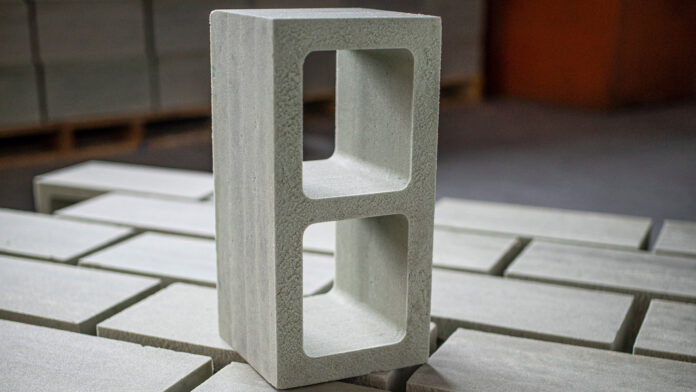Colorado-based Prometheus Materials has developed masonry blocks from a low-carbon cement-like material grown from micro-algae. The blocks, which meet the American Society for Testing and Materials (ASTM) standards, were made using an organic cement-like material grown in bioreactors that reproduces itself in ways similar to coral (Dreith, 2022).
“Coral reefs, shells, and even the limestone we use to produce cement today show us that nature has already figured out how to bind minerals together in a strong, clever, and efficient way,” said Prometheus Materials co-founder Wil V Srubar III (Dreith, 2022).
“By working with nature to use existing microalgae to bind minerals and other materials together to create new types of sustainable bio-composite building materials, we can eliminate most, if not all, of the carbon emissions associated with traditional concrete-based building materials.” (Dreith, 2022).
The blocks were created by mixing this bio-cement with aggregate to create a low-carbon building material with mechanical, physical and thermal properties comparable to Portland cement-based concrete (Dreith, 2022).
The bio-cement could be mass-produced as an alternative to Portland cement, which is a huge source of carbon emissions as it relies on clinker made from crushed and burned limestone. The process separates the calcium, which is a key ingredient in cement, from the carbon, which is released into the atmosphere. The material was first developed by University of Colorado at Boulder (CU) professors in response to a call from the US Department of Defense to envision sustainable materials. Prometheus Materials was established in 2021 to make the material available for public use with masonry blocks being the first application (Dreith, 2022).
Personal notes:
It is essential to continue making alternative materials to fossil fuel-derived materials profitable and commercialized. Bio-cement is an interesting proposal. It is in advanced development because it is currently in commercial production. Visually the bricks have a polished concrete-like finish, which makes them visually appealing. The claim that bio-cement can become or is a material comparable in characteristics to Portland cement, therefore, becomes a real alternative for the construction sector.
Dreith, B. (2022, June 7). Som-backed prometheus materials turns algae-like composite into masonry blocks. Dezeen. Retrieved January 29, 2023, from https://www.dezeen.com/2022/06/07/prometheus-biocomposite-cement-blocks/




